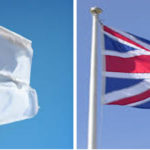An in-depth analysis of the evolving economic landscape between the United States and South Africa amidst recent policy shifts. On April 2nd, 2025, President Donald Trump announced a series of reciprocal tariffs aimed at key trading partners, including South Africa, indicating a significant shift in US trade policy. The United States and South Africa have […]
Read moreCommentary







